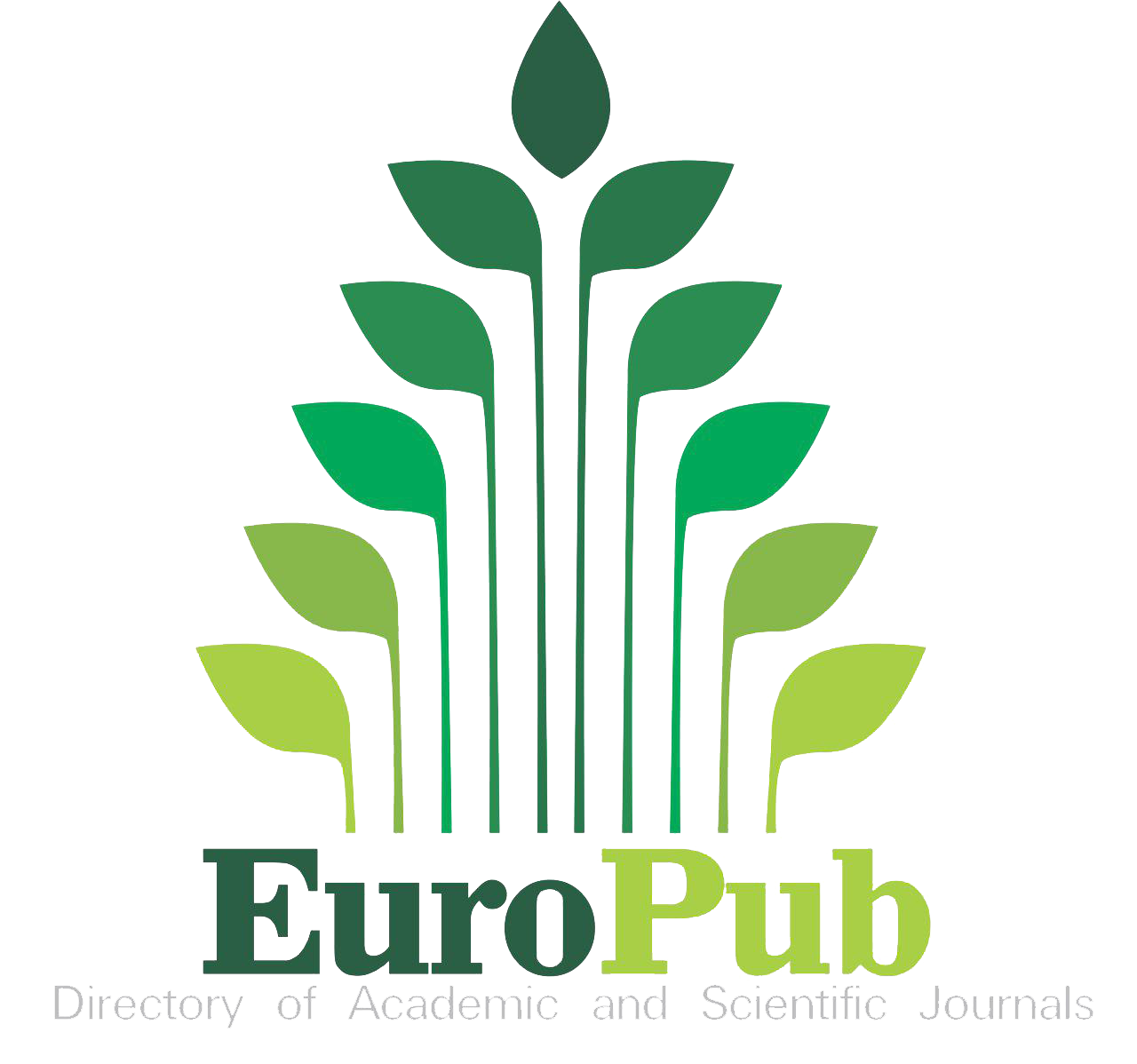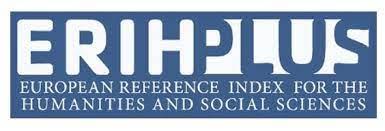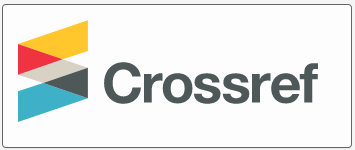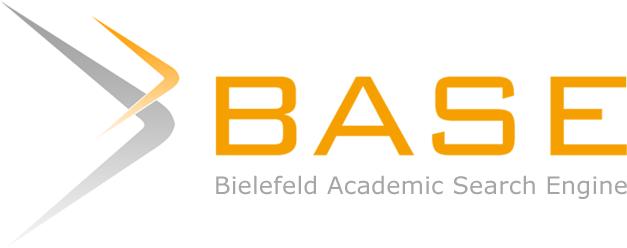Emergence of the Smart Society
DOI:
https://doi.org/10.52340/jds.2022.02.32საკვანძო სიტყვები:
Society 5.0, social changes; information society; smart citizen; smart urbanization.ანოტაცია
In the 1990s, humankind experienced social changes that led to the emergence of the information society. It was a new form of social existence in which the primary role is to collect, store, analyze and pass on networked information. The article focuses on the emergence of the information society and its transitions into Society 5.0. This transition came in the context of digital individualism, and its consequences are visible in the transformations in civilizing urbanization.
The article represents a theoretical retrospective based on the systematic literature review of the existing scientific and professional literature on the current human challenges in a smart environment
Downloads
წყაროები
Alawadhi, S., Aldama-Nalda, A., Chourabi, H., Gil-Garcia, J. R., Leung, S., Mellouli, S., ... & Walker, S. (2012). Building understanding of smart city initiatives. In Schol, J.H., Janssen, M., Wimmer, A.M., Moe, E.C., & Skiftenes Flak, L., (Eds.), International conference on electronic government (pp. 40-53). Berlin, DE: Springer.
Alexander, C. P. (1983). The new economy. Time, May, 30, 62-70.
Albino, V., Berardi, U., & Dangelico, R. M. (2015). Smart Cities: Definitions, Dimensions, Performance, and Initiatives. Journal of Urban Technology, 22(1), 3-21. DOI: 10.1080/10630732.2014.942092
Alvarez, R. M., Levin, I., & Li, Y. (2018). Fraud, convenience, and e-voting: how voting experience shapes opinions about voting technology. Journal of Information Technology & Politics, 15(2), 94-105. DOI: 10.1080/19331681.2018.1460288
Anand, P. B., & Navío-Marco, J. (2018). Governance and economics of smart cities: opportunities and challenges. Telecommunications Policy, 42(10), 795-799. DOI: 10.1016/j.telpol.2018.10.001
Angelidou, M., Psaltoglou, A., Komninos, N., Kakderi, C., Tsarchopoulos, P., & Panori, A. (2018). Enhancing sustainable urban development through smart city applications. Journal of Science and Technology Policy Management, 9(2). DOI: 10.1108/JSTPM-05-2017-0016
Barns, S. (2018). Smart cities and urban data platforms: Designing interfaces for smart governance. City, Culture and Society, 12, 5-12. DOI: 10.1016/j.ccs.2017.09.006
Bibri, S. E. (2019). On the sustainability of smart and smarter cities in the era of big data: an interdisciplinary and transdisciplinary literature review. Journal of Big Data, 6(1), 1-64. DOI: 10.1186/s40537-019-0182-7
Biørn-Hansen, A., Grønli, T. M., & Ghinea, G. (2018). A survey and taxonomy of core concepts and research challenges in cross-platform mobile development. ACM Computing Surveys (CSUR), 51(5), 1-34. doi:10.1145/3241739
Blum, C., & Zuber, C. I. (2016). Liquid democracy: Potentials, problems, and perspectives. Journal of Political Philosophy, 24(2), 162-182. DOI: 10.1111/jopp.12065
Bolívar, M. P. R., & Meijer, A. J. (2016). Smart governance: Using a literature review and empirical analysis to build a research model. Social Science Computer Review, 34(6), 673-692. DOI: 10.1177/0894439315611088
Bolívar, M. P. R. (2015). Transforming city governments for successful smart cities. Cham: Springer.
Büchi, G., Cugno, M., & Castagnoli, R. (2020). Smart factory performance and Industry 4.0. Technological Forecasting and Social Change, 150. DOI: 10.1016/j.techfore.2019.119790
Browning, C. R. (2018). The suffocation of democracy. New York Review of Books, 65(16), 14-17.
Cabinet Office (2016). 5th Science and Technology Basic Plan by the Council for Science, Technology. Retrieved from http://www8.cao.go.jp/cstp/english/basic/5thbasicplan.pdf.
Cardullo, P., & Kitchin, R. (2019). Smart urbanism and smart citizenship: The neoliberal logic of ‘citizen-focused’smart cities in Europe. Environment and Planning C: Politics and Space, 37(5), 813-830. DOI: 10.1177/0263774X18806508
Caruso, L. (2018). Digital innovation and the fourth industrial revolution: epochal social changes?. Ai & Society, 33(3), 379-392. DOI: 10.1007/s00146-017-0736-1
Cassandras, C. G. (2016). Smart cities as cyber-physical social systems. Engineering, 2(2), 156-158. DOI: 10.1016/J.ENG.2016.02.012
Castelnovo, W., Misuraca, G., & Savoldelli, A. (2016). Smart cities governance: The need for a holistic approach to assessing urban participatory policymaking. Social Science Computer Review, 34(6), 724-739. DOI: 10.1177/0894439315611103
Castells, M. (2010). Globalisation, networking, urbanisation: Reflections on the spatial dynamics of the information age. Urban Studies, 47(13), 2737-2745. DOI: 10.1177/0042098010377365
Chamoso, P., Pérez-Ramos, H., & García-García, Á. (2014). ALTAIR: Supervised Methodology to Obtain Retinal Vessels Caliber. ADCAIJ: Advances in Distributed Computing and Artificial Intelligence Journal. Salamanca, 3(4). DOI: 10.14201/ADCAIJ2014345060
Chohan, S. R., & Hu, G. (2020). Success factors influencing citizens’ adoption of IoT service orchestration for public value creation in smart government. IEEE Access, 8. doi: 10.1109/ACCESS.2020.3036054
Chong, M., Habib, A., Evangelopoulos, N., & Park, H. W. (2018). Dynamic capabilities of a smart city: An innovative approach to discovering urban problems and solutions. Government Information Quarterly, 35(4), 682-692. doi:10.1016/j.giq.2018.07.005
Davis, N. (2016). What is the fourth industrial revolution? Retrieved from https://www.weforum.org/agenda/2016/01/what-is-the-fourth-industrial-revolution/
De Blasio, E., & Sorice, M. (2018). Populism between direct democracy and the technological myth. Palgrave Communications, 4(1), 15. DOI: 10.1057/s41599-018-0067-y
Ensmenger, N. (2012). The digital construction of technology: Rethinking the history of computers in society. Technology and Culture, 53(4), 753-776.
Esau, K., Fleuß, D., & Nienhaus, S. M. (2020). Different Arenas, Different Deliberative Quality? Using a Systemic Framework to Evaluate Online Deliberation on Immigration Policy in Germany. Policy & Internet. In press. DOI: 10.1002/poi3.232
Farrell, D. (2003). The real new economy. Harvard Business Review, 81(10), 104-12.
Freeman, R.B. (2015). Who owns the robots rules the world. IZA World of Labor, Vol. 5. Retrieved from https://wol.iza.org/uploads/articles/5/pdfs/who-owns-the-robotsrules-the-world.pdf
Ford, B. A. (2002). Delegative democracy. Retrieved from https://infoscience.epfl.ch/record/265695
Gretzel, U., Werthner, H., Koo, C., & Lamsfus, C. (2015). Conceptual foundations for understanding smart tourism ecosystems. Computers in Human Behavior, 50, 558-563.
Guy, J. S. (2019). Digital technology, digital culture and the metric/nonmetric distinction. Technological Forecasting and Social Change, 145, 55-61. DOI: 10.1016/j.techfore.2019.05.005
Haberl, H., Fischer‐Kowalski, M., Krausmann, F., Martinez‐Alier, J., & Winiwarter, V. (2011). A socio‐metabolic transition towards sustainability? Challenges for another great transformation. Sustainable Development, 19(1), DOI: 1-14. 10.1002/sd.410
Hawkins, K. A. (2019). The ideational approach. In de la Torre, C. (Ed.), Routledge handbook of global populism (pp, 57-72). Abingdon, OX: Routledge.
Holder, C., Khurana, V., Harrison, F., & Jacobs, L. (2016). Robotics and law: Key legal and regulatory implications of the robotics age (Part I of II). Computer Law & Security Review, 32(3), 383-402. DOI: 10.1016/j.clsr.2016.03.001
Horowitz, M. C. (2019). When speed kills: Lethal autonomous weapon systems, deterrence and stability. Journal of Strategic Studies, 42(6), 764-788. DOI: 10.1080/01402390.2019.1621174
Hughes, C., & Southern, A. (2019). The world of work and the crisis of capitalism: Marx and the Fourth Industrial Revolution. Journal of Classical Sociology, 19(1), 59-71. DOI: 10.1177/1468795X18810577
Huo, T., Li, X., Cai, W., Zuo, J., Jia, F., & Wei, H. (2020). Exploring the impact of urbanisation on urban building carbon emissions in China: Evidence from a provincial panel data model. Sustainable Cities and Society, 56, 102068. DOI: 10.1016/j.scs.2020.102068
Iyengar, S., & Westwood, S. J. (2015). Fear and loathing across party lines: New evidence on group polarisation. American Journal of Political Science, 59(3), 690-707. DOI: 10.1111/ajps.12152
Jorgenson, D. W. (2001). Information technology and the US economy. American Economic Review, 91(1), 1-32. DOI: 10.1257/aer.91.1.1
Joseph, J., & Gaba, V. (2020). Organizational structure, information processing, and decision-making: a retrospective and road map for research. Academy of Management Annals, 14(1), 267-302. DOI: 10.5465/annals.2017.0103
Komninos, N., Kakderi, C., Panori, A., & Tsarchopoulos, P. (2019). Smart city planning from an evolutionary perspective. Journal of Urban Technology, 26(2), 3-20. DOI: 10.1080/10630732.2018.1485368
Komninos, N., Kakderi, C., Collado, A., Papadaki, I., & Panori, A. (2020). Digital Transformation of City Ecosystems: Platforms Shaping Engagement and Externalities across Vertical Markets. Journal of Urban Technology, In Press. DOI: 10.1080/10630732.2020.1805712
Krivý, M. (2018). Towards a critique of cybernetic urbanism: The smart city and the society of control. Planning Theory, 17(1), 8-30. DOI: 10.1177/1473095216645631
Kuru, K., & Ansell, D. (2020). TCitySmartF: A comprehensive systematic framework for transforming cities into smart cities. IEEE Access, 8, 18615-18644. DOI: 10.1109/ACCESS.2020.2967777
Lefebvre, H. (2009). State, space, world: Selected essays. Minneapolis, MN: University of Minnesota Press.
Litvinenko, A. (2012). Social media and perspectives of liquid democracy on the example of political communication of Pirate Party in Germany. In Gasco, M. (Ed) The Proceedings of the 12th European Conference on e-Government in Barcelona (pp. 403-408), Barcelona 14-15 June 2012. Barcelona: Institute of Public governance and management ESADE Barcelona.
Lucke, D., Constantinescu, C., & Westkämper, E. (2008). Smart factory-a step towards the next generation of manufacturing. London, UK: Springer.
Lv, Z., Li, X., Wang, W., Zhang, B., Hu, J., & Feng, S. (2018). Government affairs service platform for smart city. Future Generation Computer Systems, 81, 443-451. DOI: 10.1016/j.future.2017.08.047
Lyon, D. (2013). The information society: Issues and illusions. Oxford, UK: Polity Press.
Martin, W. J. (2017). The global information society. Thousand Oaks, FL: Taylor & Francis.
Moustaka, V., Maitis, A., Vakali, A., & Anthopoulos, L. G. (2020). CityDNA Dynamics: A Model for Smart City Maturity and Performance Benchmarking. In Seook-Jin, E. & Johor, L. (Eds.), Companion Proceedings of the Web Conference 2020 (pp. 829-833). New York, NY: The Association for Computing Machinery.
Munyai, T. T., Mbonyane B. L., & Mbohwa, C. (2017). Productivity improvement in manufacturing SMEs: Application of work-study. Boca Raton, FL: Taylor & Francis Productivity Press.
May, C. (2002). The information society: A sceptical view. Cambridge, UK: Polity.
Nitoslawski, S. A., Galle, N. J., Van Den Bosch, C. K., & Steenberg, J. W. (2019). Smarter ecosystems for smarter cities? A review of trends, technologies, and turning points for smart urban forestry. Sustainable Cities and Society, 51, 101770. DOI: 10.1016/j.scs.2019.101770
Paulin, A. (2016). Information smart cities governance? Let us first understand the atoms!. Journal of the Knowledge Economy, 7(2), 329-343. DOI: 10.1007/s13132-016-0368-6.pdf
Pedersen, K. (2020). What can open innovation be used for, and how does it create value?. Government Information Quarterly, 37(2), 101459. DOI: 10.1016/j.giq.2020.101459
Pereira, G. V., Parycek, P., Falco, E., & Kleinhans, R. (2018). Smart governance in the context of smart cities: A literature review. Information Polity, 23(2), 143-162. DOI: 10.3233/IP-170067
Pitasi, A., Brasil Dib, N., & Portolese, G. (2018). Legislative innovation. Towards a global law. Making process: the case of global citizenship policy modelling. International Review of Sociology, 28(3), 392-402. DOI: 10.1080/03906701.2018.1529102
Radziwon, A., Bilberg, A. Bogers, M., & Madsen,. E. S. (2014). The smart factory: exploring adaptive and flexible manufacturing solutions. Procedia Engineering 69, 1184–1190. DOI: 10.1016/j.proeng.2014.03.108
Roblek, V., Bach, M. P., Meško, M., & Bertoncel, T. (2020). Best practices of the social innovations in the framework of the e-government evolution. Anfiteatro Economic, 22(53), 275-302. DOI: 10.24818/EA/2019/53/275
Roblek, V., Erenda, I., & Mesko, M. (2020). Fundamental changes in the organisational processes. In Machado, C. & Davim, J. P. (Eds.), Industry 4.0: Challenges, Trends, and Solutions in Management and Engineering (pp. 161-190). Boca Raton, FL: CRC Press/Taylor & Francis Group.
Russell, S., Dewey, D., & Tegmark, M. (2015). Research priorities for robust and beneficial artificial intelligence. Ai Magazine, 36(4), 105-114. DOI: 10.1609/aimag.v36i4.2577
Sepasgozar, S. M., Hawken, S., Sargolzaei, S., & Foroozanfa, M. (2019). Implementing citizen-centric technology in developing smart cities: A model for predicting the acceptance of urban technologies. Technological Forecasting and Social Change, 142, 105-116. DOI: 10.1016/j.techfore.2018.09.012
Skeggs, B., & Yuill, S. (2019). Subjects of value and digital personas: reshaping the bourgeois subject, unhinging property from personhood. Subjectivity, 12(1), 82-99. DOI: 10.1057/s41286-018-00063-4
Skobelev, P. O., & Borovik, S. Y. (2017). On the way from Industry 4.0 to Industry 5.0: From digital manufacturing to digital society. Industry 4.0, 2(6), 307-311.
Song, I. Y., Song, M., Timakum, T., Ryu, S. R., & Lee, H. (2018). The landscape of smart ageing: Topics, applications, and agenda. Data & Knowledge Engineering, 115, 68-79. DOI: 10.1016/j.datak.2018.02.003
Trindade, E. P., Hinnig, M. P. F., Moreira da Costa, E., Marques, J. S., Bastos, R. C., & Yigitcanlar, T. (2017). Sustainable development of smart cities: A systematic review of the literature. Journal of Open Innovation: Technology, Market, and Complexity, 3(3), 11. DOI: 10.1186/s40
Webster, C. W. R., & Leleux, C. (2018). Smart governance: Opportunities for technologically-mediated citizen co-production. Information Polity, 23(1), 95-110. DOI: 10.3233/IP-170065
Webster, F. (2014). Theories of the information society. London, UK: Routledge.
Wirtz, B. W., & Birkmeyer, S. (2015). Open government: Origin, development, and conceptual perspectives. International Journal of Public Administration, 38(5), 381-396. DOI: 10.1080/01900692.2014.942735
Yigitcanlar, T., Kamruzzaman, M., Buys, L., Ioppolo, G., Sabatini-Marques, J., da Costa, E. M., & Yun, J. J. (2018). Understanding ‘smart cities’: Intertwining development drivers with desired outcomes in a multidimensional framework. Cities, 81, 145-160. DOI: 10.1016/j.cities.2018.04.003
Yoo, J. (2017). Embracing the machines: rationalist war and new weapons technologies. California Law Review, 105, 443. DOI: 10.15779/Z38D50FX0X
Zoomers, A., Van Noorloos, F., Otsuki, K., Steel, G., & Van Westen, G. (2017). The rush for land in an urbanising world: From land grabbing toward developing safe, resilient, and sustainable cities and landscapes. World Development, 92, 242-252. DOI: 10.1016/j.worlddev.2016.11.016
Zuboff, S., 2019. The age of surveillance capitalism: The fight for a human future at the new frontier of power. London, UK: Profile Books Ltd.














